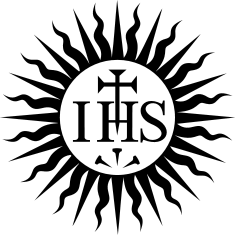SAMIS-ESIC School of Information and Communication
 | |
| Type | Private, professional school |
|---|---|
| Established | 2001 |
Religious affiliation | Jesuit, Catholic |
| Director | Fr. Jacques Mananto, SJ |
| Location |
St. Michael - BP 3832 Amparibe, Antananarivo Madagascar |
| Campus | St. Michael College |
| Website |
samis-esic.mg English |
SAMIS-ESIC School of Information and Communication (Sekoly Ambony momba ny Ita sy ny Serasera – École Supérieure de l'Information et de la Communication) was founded in 2001 by the Jesuits on the campus of St. Michael College, Amparibem, Madagascar, devoted entirely to training professional journalists and effective communicators for diverse careers. Sami-ESIC offers both the bachelor's and master's degrees.[1]
Mission
SAMIS-ESIC prepares professionals with communications skills, including written press, radio, television, and political communication, as well as expertise in information and communication technologies. This area of education was chosen by the Jesuits because of its potential for fostering the democratic process and because of the increasing importance of the web: blogs, chat, multimedia art, social networks, immersive technologies, virtual organizations, portable media, podcasts. Integrated into studies are practicums and internships.[1]
Program
Students spend the first two years on a core curriculum, and in the third year choose from the areas of media communication, organizational communication, and social communication.
- Media communication coursework includes the fundamentals of journalism, print journalism, the copy desk, and radio and television broadcasting.
- Organizational communication would prepare students to be responsible for communication within a company, and on behalf of the company to the public.
- Social communication addresses the need of the whole spectrum of groups within society to communicate among themselves and to those outside their membership. Particularly relevant here to the social purpose of the College would be the empathy and skills to assist rural groups to unify their efforts and effectively publicize their needs.[2]
Production workshop. The media look to employ people who can hit the ground running, with experience behind them. In response to this need, for six weeks between semesters students are tasked to organize production companies, defining all the personnel to carry out specific tasks within one of four type companies: written press, radio, television, or multimedia. This involves defining the necessary infrastructure, equipment, personnel, and projects. Skills at teamwork are also acquired through this practicum.[3]
Facilities
Computer room – Besides the stock programs, software is available for website creation, computer graphics, and audio and video editing.
Radio studio – This includes the usual hardware plus mixers and recorder drives (CD-DVD, K7, DAT, MD).
TV Studio – This includes a professional digital video camera, video and audio mixers, and sound editing computers.[1]
References
Coordinates: 18°54′55.84″S 47°31′31.93″E / 18.9155111°S 47.5255361°E